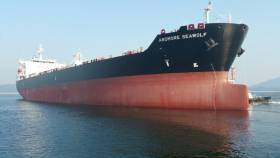Displaying items by tag: Appointments
Ardmore Adds Appointments to Corporation's Global Offices
#Appointments – Ardmore Shipping Corporation which has its Principal Operating Office at Cork City’s Albert Quay has made several appointments last month, writes Jehan Ashmore.
Ardmore is engaged in the ownership and operation of a fleet of 27 product and chemical tankers totalling in worldwide trade. The modern vessels on average are only five years in service. For further details of the mixed fleet, see further below.
The corporation’s executive office is based in Bermuda and has offices also located in Singapore and Houston, USA. The appointments made were for positions located in the latter two offices as outlined below:
Liwen Zhang joins the Ardmore financial team to work with the company’s financial team as Financial Accountant. Liwen is a Chartered Accountant with a strong background in shipping, having previously worked in various accounting and financial reporting roles within the industry.
She will be based in the Singapore office and will assist the financial team to meet its reporting requirements while reporting to Ardmore’s senior management team.
James (Jim) Monigan joins Ardmore as Regional Operations Manager based in Houston, USA, having had 20 years of experience in the maritime field. In his new role, Jim will be responsible for managing Ardmore’s spot trading vessels currently operating in the west region.
He will also be working closely with Chartering Manager Holly Cummings, to provide support for Ardmore’s chartering activities in the US region.
Also recently joined Ardmore is Celia Kang to the team as Marine Personnel Manager. Kang holds a Bachelor’s Degree in Civil and Environmental Engineering and Banking, and joins the operations team in Singapore with 10 years of experience in the maritime industry including Maersk Singapore and AP Moller.
In her previous role, Celia worked for Thome Ship Management holding various positions including Strategic Crewing, Assistant Manager (tanker fleet), and lastly Deputy Head of Crewing. Her positions within Thome enabled her to have a direct working relationship with Ardmore’s operations team.
The recent appointments follow that of Afloat's coverage last October of Jorge Lavin as the company's Financial Controller.
Ardmore also provides to customers, voyage charters, commercial pools and time charters. In recent years the company have engaged in a succession of orders from Asian shipyards, culminating with ten newbuilds completed in 2010 alone.
Afloat has examined the fleet list that totals 27 vessels. Those that perform both functions range from 25,217dwt up to 49,999dwt.
Of the above fleet total, a quartet of vessels are ‘product’ only ships that range from 45,000 to 49,999dwt. Overall the fleet are modern given the majority were built since 2013 and mostly built in South Korea, the balance at yards in Japan.
What they also share in common is the fleet are all flagged in the Marshall Islands in the Pacific Ocean.






























































